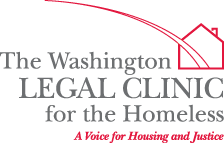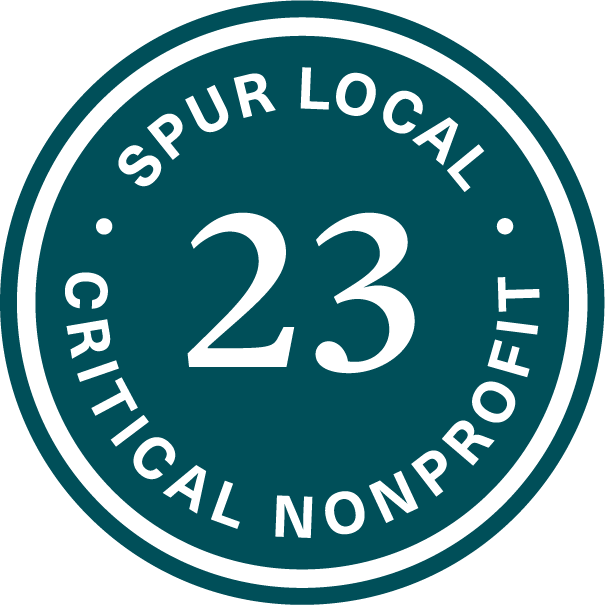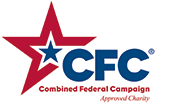Welcome to our first assessment of the proposed FY22 budget! We will try to explain how much money Mayor Bowser has committed to meet our demands for ending and preventing homelessness and creating deeply affordable housing. As usual, there is some good news and some bad news.
But this year, there is also plenty of confusion. A lot of the confusion is derived from the Mayor releasing a budget that includes not only local budget investments and cuts, but also federal relief money. Where we can, we will tell you what type of funding went where, but it is not always clear from the information we have so far. We think it is important to know whether the Mayor is investing local tax dollars, unrestricted federal dollars, or federal money that had to be spent in a certain way. The first two categories evidence a political commitment to our priorities and demands. The third category—federal money that has to be used for that purpose—does not. Unfortunately, we don’t yet have enough information to break the Mayor’s budget down at that level of detail.
As a reminder, our asks are for an amount of investment above the current fiscal year. All of our asks are also asks of the Fair Budget Coalition, and we fully support the entire platform. A subset of our asks overlap with the Way Home Campaign, and we fully support that campaign’s platform as well.
End homelessness
First, we asked Mayor Bowser to make strong strides in ending chronic homelessness by investing in Permanent Supportive Housing (PSH) for 2761 individuals ($79.82 million) and 432 families ($16.31 million). The Mayor did not invest any local dollars in PSH, but did direct federal emergency housing vouchers and federal unrestricted funds to provide Permanent Supportive Housing vouchers to 527-687 individuals and 280-327 families. If you have been paying attention to social media and the Mayor’s briefings, you will see that the numbers we cite here are lower than what the Mayor cited. The Mayor included some site-based PSH and some partially funded PSH slots in her total. We have excluded the site-based PSH and included the partially funded slots in our total, as the top end of the range. (For the partially funded slots, service dollars are there but there is a difference of opinion on how many vouchers will be available.) While this investment is welcome, you can see by the below chart that the unmet need is daunting.

 Second, we asked for $23.34 million for Targeted Affordable Housing (TAH) for 928 homeless families. Mayor Bowser did not fund a single new Targeted Affordable Housing voucher. Most homeless families do not need intensive services, or even any services, with their housing. They just need affordable housing. We arrived at the number of families that needed TAH by reviewing the Department of Human Services (DHS) data on families in rapid re-housing, the vast majority of whom do not qualify for permanent supportive housing but desperately need long-term housing assistance. DHS has stated that they are not getting rid of the TAH program, that people who do not need a lot of services can be served by “PSH-lite.” This is counter to the statutory eligibility standard for PSH, which requires that the head of household have a qualifying disability. It is also inefficient to fund services for people who do not need or want services. Not to mention that being unable to afford housing in DC does not mean that a person requires social or supportive services.
Second, we asked for $23.34 million for Targeted Affordable Housing (TAH) for 928 homeless families. Mayor Bowser did not fund a single new Targeted Affordable Housing voucher. Most homeless families do not need intensive services, or even any services, with their housing. They just need affordable housing. We arrived at the number of families that needed TAH by reviewing the Department of Human Services (DHS) data on families in rapid re-housing, the vast majority of whom do not qualify for permanent supportive housing but desperately need long-term housing assistance. DHS has stated that they are not getting rid of the TAH program, that people who do not need a lot of services can be served by “PSH-lite.” This is counter to the statutory eligibility standard for PSH, which requires that the head of household have a qualifying disability. It is also inefficient to fund services for people who do not need or want services. Not to mention that being unable to afford housing in DC does not mean that a person requires social or supportive services.
Related, we asked for families to be extended in rapid re-housing until they can be transitioned into permanent housing assistance. We do not see any funding in the budget to do so. Although we have been told that the Mayor is exploring using relief funds to extend families, no promises have been made for how long those extensions will last. Not only is there no public plan that would reassure us that thousands of families are safe from an exit into eviction and homelessness, the lack of permanent housing subsidies for families will make it much harder to avoid a benefits cliff.

Third, we advocated for $17.33 million for 800 Local Rent Supplement Tenant Vouchers (LRSP) Tenant Vouchers. This program provides vouchers to people who are homeless and on the 41,000-household DC Housing Authority waitlist. The Mayor did not add one cent to this invaluable program.

Last (at least in this category), we requested $1.8 million for the second year of the Reentry Housing Pilot, providing housing and services for 50 returning citizens. Mayor Bowser did not put any money into this pilot.
Prevent eviction and utility terminations
We asked the Mayor to commit at least $100 million in rent and utility relief above what was in the budget in FY21, depending on the need and how far the federal funding goes. We know that we have significant funding from the federal government but that money is not currently covering all needs. For example, right now DC has chosen not to pay people’s Internet bills with the federal money. Another example is that the relief is limited to debts that occurred during or because of the pandemic. If tenants were behind in rent or utilities when the pandemic started, even if they get every other month paid for by STAY DC (the federal program), they could still get evicted or have their utilities shut off.
Mayor Bowser cut the Emergency Rental Assistance Program (ERAP) (which runs out of money every year) by $5.5 million. We will be asking the Council to restore the cut to ERAP and exploring the magnitude of relief that will not be met by STAY DC.
Preserve and repair public housing
We asked for $60 million per year to allow the DC Housing Authority to repair and preserve public housing. There was already $15 million in the fund for FY22. The Mayor added $7 million, bringing the total fund to $22 million for next year. She added $20 million in FY23 and $15 million in FY 24. It also appears that she earmarked all the funds through FY24 for one property: Claridge Towers. It is unclear what the impact of that decision will be on the other properties badly in need of repair, renovation, or complete rebuilding.

Build deeply affordable housing
We asked the Mayor to maintain a minimum of $52 million for deeply affordable housing in the Housing Production Trust Fund (meaning a total investment of $104 million). This is the only one of our asks that the Mayor met and in fact, drastically surpassed. Mayor Bowser devoted $250 million in FY22 to the trust fund, meaning $125 million should be reserved for building deeply affordable housing for households whose income is between 0 and 30% of Area Median Income. $166.7 million out of the $250 million comes from federal funding.

But—the Housing Production Trust Fund can only be used to build deeply affordable housing if it is paired with enough operating subsidy to keep the costs manageable for people to pay low rents. While the Mayor has announced $42 million in new funding for this program over the next few year starting in FY23, called project/sponsor-based Local Rent Supplement Program, she only devoted $2.8 million to the program in FY22. We are still exploring, with our nonprofit housing developer colleagues, whether they can finance deeply affordable housing with the promise of funding in the future, or whether it needs to be in this upcoming fiscal year. While the intention to fund the requisite LRSP is great, the lack of clarity around that funding and how it shows up in the budget over the upcoming years (including how projects are selected and the varying rising costs) raises doubt as to whether the investment is truly adequate to match the substantial HPTF investment and future projects.
For the first time this year, we asked the Mayor to invest in purchasing hotels and converting them to non-congregate shelter and/or deeply affordable housing. We are pleased to announce that we believe there is $50 million from local and federal money to acquire and convert hotels into deeply affordable housing and shelter. We are very excited to see this happen.
What else?
Here are some other areas that we are looking into that we haven’t had time to research or digest yet: 1) the $102 million for shelter upgrades and replacements (including Harriet Tubman, New York Ave, 801 East and Adams Place); 2) cuts in the homeless services continuum that may or may not have service impacts; and 3) the movement of new Local Rent Supplement Program money out of DC Housing Authority and into dependent agencies under the Mayor.
Overall, if we had to grade the Mayor on local investments in ending and preventing homelessness and increasing deeply affordable housing, we would have given her a failing grade. We give the Mayor credit, though, for dedicating unrestricted funds to housing and homelessness. But, while the federal money lifted the budget from dismal to promising in some areas, the federal money, if partnered with more significant local investments, presented a once in a lifetime opportunity to actually remedy historic injustices and inequities that have left DC residents struggling. Mayor Bowser, unfortunately, did not take that opportunity. It is up to the Council now to shift this budget into one that does more to shake up the status quo, and more to provide housing justice to District residents. We encourage everyone to let Councilmembers know, via testifying at hearings or contacting them directly, that you expect your elected leaders to prioritize ending homelessness and preserving and building deeply affordable housing in this budget.





